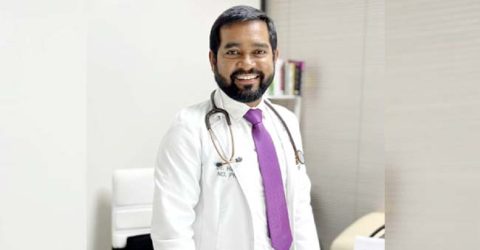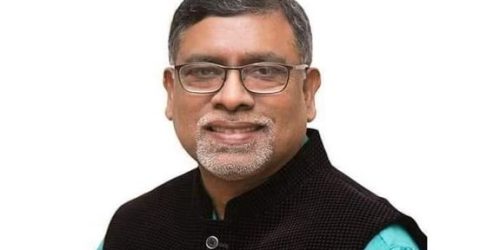
RAJSHAHI, – Sarkarpara Union Health and Family Welfare Centre (UH&FWC) has become blessings for many pregnant mothers because they are getting scopes of institutional delivery there.
Located at Soronjai Union under Tanore upazila in the district, the center has attained trust of the grassroot expectant mothers in terms of availing labor services besides antenatal care (ANC), postnatal care (PNC) and neonatal services.
According to the latest official data, 44 mothers have, so far, received normal delivery services since the beginning of 2020. Besides, 666 mothers received ANC services and 236 received PNC services there.
“We’ve made the facility capable of providing necessary reproductive health services through equipping labor rooms with necessary accessories and water supply,” said Abdul Malek, chairman of Soronjai Union Parishad (UP).
The Public Health Improvement Initiative Rajshahi (PHIIR) Project has been providing essential support in order to keep the delivery services running, he said.
Information, education and communication materials like danger signs of ANC, PNC and neonatal care posters, postpartum hemorrhage and eclampsia protocol were supplied there.
Besides, fridge and labor room related accessories have been provided from the project for encouraging and ensuring institutional deliveries.
UP Chairman Malek said Family Welfare Visitor (FWV) Sagira Aktar was given appointment as contributory staff with financial support of the project in February last.
“We’ve referral services for the mothers suffering from various pregnancy-related complexities like vaginal bleeding, eclampsia, severe headaches and fever and delayed labor,” said Sagira Aktar.
Angura Bibi, 26, wife of Sabir Uddin of the Saranjai village, was blessed with their third baby through normal delivery on May 4 last.
Examining some complexities in the UH&FWC Bibi was being taken to a nearby private clinic for better labor management but she gave birth on auto-rickshaw on the way to the clinic due to massive labor pain with competent management of FWV Sagira Khatun.
Currently the mother and baby are in good condition making all the family members happy.
Jeliara Khatun, 30, Tania Khatun, 20, and Poly Akter, 20, are also happy among many others with their newborns after getting ANC, PNC and neonatal services in the Sarkarpara rural facility.
“I am very happy to be able to serve the mothers of the area,” said Khatun, adding everyone is very helpful. Delivering the latest mom was very complicated but there was no difficulty in managing the pregnant mother’s due to her family support.
“I will be able to provide all the normal delivery services nicely in the days to come,” she hoped.
DASCOH Foundation has been implementing the PHIIR project in five upazila health complexes, 42 UHFWCs and 110 Community Clinics under Bagmara, Charghat and Tanore upazilas in Rajshahi and Porsha and Sapahar upazilas in Naogaon districts for the last couple of years.
The project is intended to improve the health status of the targeted population with special focus on maternal, neonatal and child health at primary health care level.
“We’ve recorded 3,324 deliveries including 3,308 normal ones comprising 2,703 in upazila health complexes and 605 in UH&FWC during the period of October 2019 to March 2021,” said PHIIR Project Manager Tozammel Haque.
On behalf of the project, essential equipment like refrigerators, delivery beds, maternal care checkup beds, oxygen cylinders, weight scales, waste bins and curtains are being provided for labor rooms of the UH&FWCs and Union Sub Centers (USCs) to make those fit for providing various reproductive healthcare services including normal delivery.
Divisional Director of the Department of Family Planning Shafiqul Islam said emphasis has been given on remote counseling of pregnant women over phone and WhatsApp, especially those with approaching expected date of delivery with specialized advice on pregnancy care and birth preparedness plan keeping the Covid-19 challenges in mind.
He, however, said the government and non-government collaborative efforts are being adjudged as substantial and sustainable promotion of institutional delivery besides reducing maternal and neonatal deaths.
With this breakthrough, the rate of maternal and neonatal mortality and morbidity has started reducing in the rural areas besides achieving the number three of sustainable development goals, Islam added.




